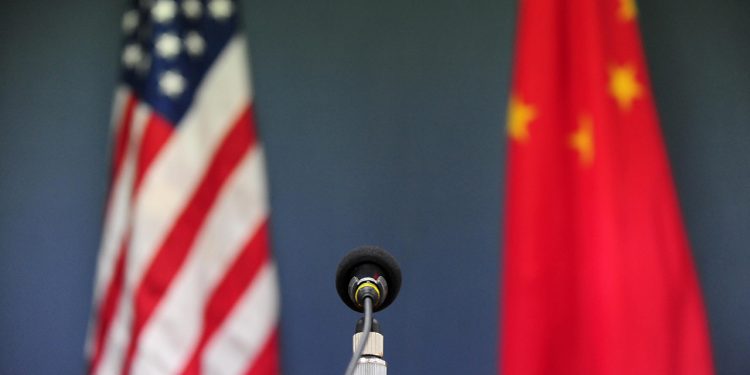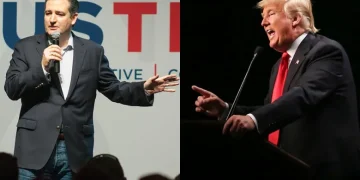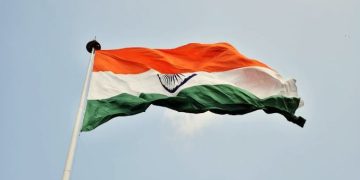Thitinan Pongsudhirak
Few parts of the world paid as high a cost during the Cold War as Southeast Asia. The superpower conflict between the United States and the Soviet Union divided the region into pro-and anti-communist camps, spawning five wars in Cambodia, Laos, and Vietnam over four decades. Today, US-China competition is fueling a so-called ‘new cold war’ with familiar structural characteristics.
In fact, the Sino-American great-power confrontation is a continuation of an unfinished ideological struggle, this time pitting the US-led and Western-based alliance system against a China-centric global network of client states, many of them with various shades of authoritarian governance. The Soviet Union lost the Cold War, but China is now giving the West a run for its money in the sequel. And Southeast Asia will once again be a major theater.
For about two decades following the end of the Cold War, America seemed to enjoy a ‘unipolar’ moment enabling it to reshape the global order, and free markets and democratisation spread around the world. But liberal democracy and market capitalism were subsequently weakened from within, particularly following the 2008 global financial crisis, enabling a growing challenge by alternative models of authoritarianism and state-directed economic development.
The vaunted Western promise of liberty and prosperity was increasingly discredited by an accelerating concentration of wealth and power, deepening social divisions, and seemingly intractable political polarisation. Electorates became more skeptical and disillusioned about what democracy and capitalism could deliver – an alienation compounded by runaway globalisation and rapid technological change.
Southeast Asia was not immune to these trends. Many people in Thailand, the Philippines, and elsewhere, resentful that their incomes and living standards had fallen behind, were attracted to populist or authoritarian alternatives.
Populist leaders around the democratic world bypassed established centers of power such as the media and the traditional political class, connecting directly with voters. Significantly, many of Asia’s populists, once elected, had little effective rule of law to constrain them.
Enter China, whose appeal thrives on the shortcomings of Western democracy and free-market capitalism. China’s model is still Leninist, but while the Communist Party of China exercises centralised political control along totalitarian lines, the country’s economic development and management are market-consistent (though not market-driven). China thus challenges and frustrates the Western model of liberal democracy and market capitalism in unprecedented ways.
The ideological battle that the Soviet Union previously waged with the West has taken on a new form with the rise of China, which feels entitled, even destined, to reclaim its glorious past. But the inherent contradictions between political totalitarianism and market-consistent capitalism make China strong and weak at the same time. No other modern state has been able to have its cake and eat it by imposing centralised control and repressing individual rights and freedoms while running a successful market economy that improves its people’s living standards.
One might argue that the Chinese state drives a capitalist economy in the same way that Japan, South Korea, and Taiwan pioneered state-led capitalism from the 1960s to the 1980s. The major difference is that the latter countries were strong US allies and partners that developed well-consolidated Western-style democracies. China is neither a US ally nor democratic, and very possibly never will be.
The Soviet Union confronted the US in proxy conflicts, such as the Indo-China wars, but eventually lost the Cold War because it could not keep up with the West’s more dynamic capitalist economic development. China has yet to confront the US directly in military terms, despite its unprecedented arms build-up, preferring to keep its powder dry for clashes over trade and technological innovation.
But, like the US three decades ago, China is trying to reshape the global system in line with its preferences. The resulting face-off between the new East and the old West would be best settled through a process of compromise and accommodation that accords China a greater international role and prestige befitting its global weight. If denied, China will likely become resentful, self-righteous, and belligerent. But, because the parameters of such accommodation are fluid, the new cold war will continue to play out.
Nowhere will the impact of this new superpower tussle be more evident and consequential than in Southeast Asia, which is increasingly divided over what China stands for and how to respond. China appears to have the upper hand in the region for now. But the COVID-19 pandemic may soon expose fundamental flaws in China’s system, because, having committed to elimination of the coronavirus, it cannot fully reopen its economy.
Meanwhile, the US and other democracies’ current high infection numbers could eventually enable them to cope with COVID-19 more effectively. If they can capitalise on that possibility, it would rebalance the new cold-war struggle in Southeast Asia and elsewhere.
The writer is a professor and Director of the Institute of Security and International Studies at Chulalongkorn University’s Faculty of Political Science in Bangkok. ©Project Syndicate.






































